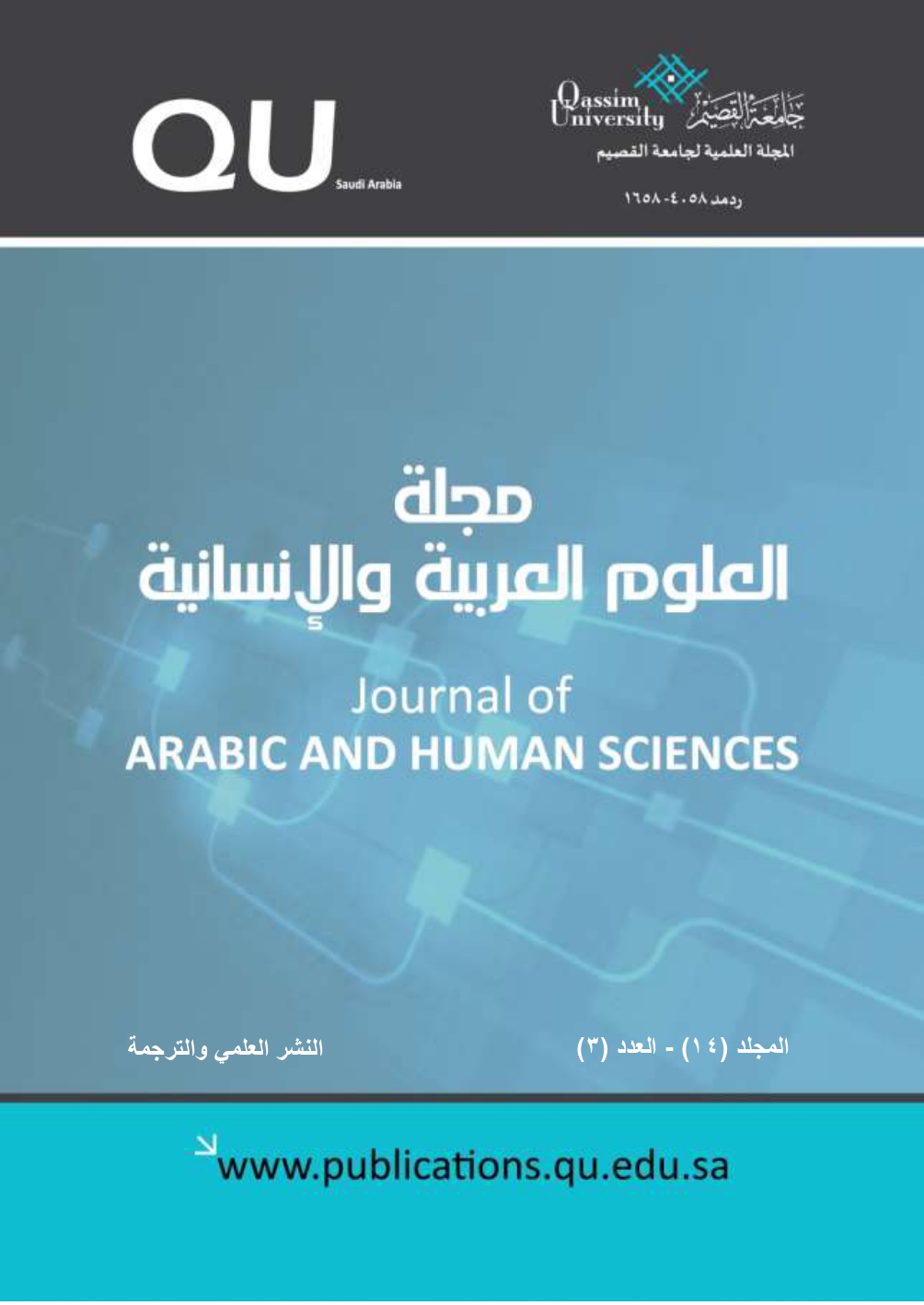Attempts to Facilitate Prosody Arabic ( oroud ) between the claims of facilitation and the genius of its construction (A critical analysis study and a new vision)
Abstract
Abstract: I have approached three topics in the field of facilitating prosody with study and analysis. They are as follows:
1- The attempt of Dr. Ibrahim Anis in his book “The Music of Poetry”
2-The attempt of Mr. Mahjoob Moussa in his book “ Problems of Prosody and their Solutions”
3- The attempt of Dr Ibrahim Assiri in his research paper “Terminology of Al Khalil’s Prosody between impeachment and amendment
Through discussing these facilitating views and comparing them to Al-Khalil’s treatment of such issues , I have proved that most attempts haven’t gone beyond what Al Khalil said, as all facilitators were found to repeat the talk about the phenomena that Al Khalil talked about , with or without the same term he used. In addition, the research has uncovered the philosophy of Al Khalil as he distinguishes different kinds of change in contrast with what facilitators saw when they lumped them both together under one name. Furthermore, I have reached the conclusion that drawing distinction between the two terms rather than joining them together is more likely to facilitate this discipline .
I have also proved that the hypotheses criticized by all the so called facilitators had prevented a lot of confusion , randomness and redundancy. At the same time , these hypothese put together consistent and homogeneous musical rhythms, which does not upset the universal music of the verse. These hypotheses posed by Al Khalil represent the most prominent features of his genius as well as prove the existence of a theoretical framework in this art which guarantees the continuity of its rules and keeps it from dispersion.Consequently, what Al Khalil did was the very essence of Facilitation.
In the fourth topic , I have introduced my own vision of facilitation of Prosody, where I see that real facilitation of prosody should start with the innovation of prosody teaching strategy, and I have suggested some systematic steps that are likely to facilitate the study of prosody. Furthermore, I have called for sufficing with Terminological meaning of prosody terms.
I have also submitted a proposal of developing the idea of encoding the terms of changes as well as creating a model which includes the ending letters of a verse together with their diacritical marks


